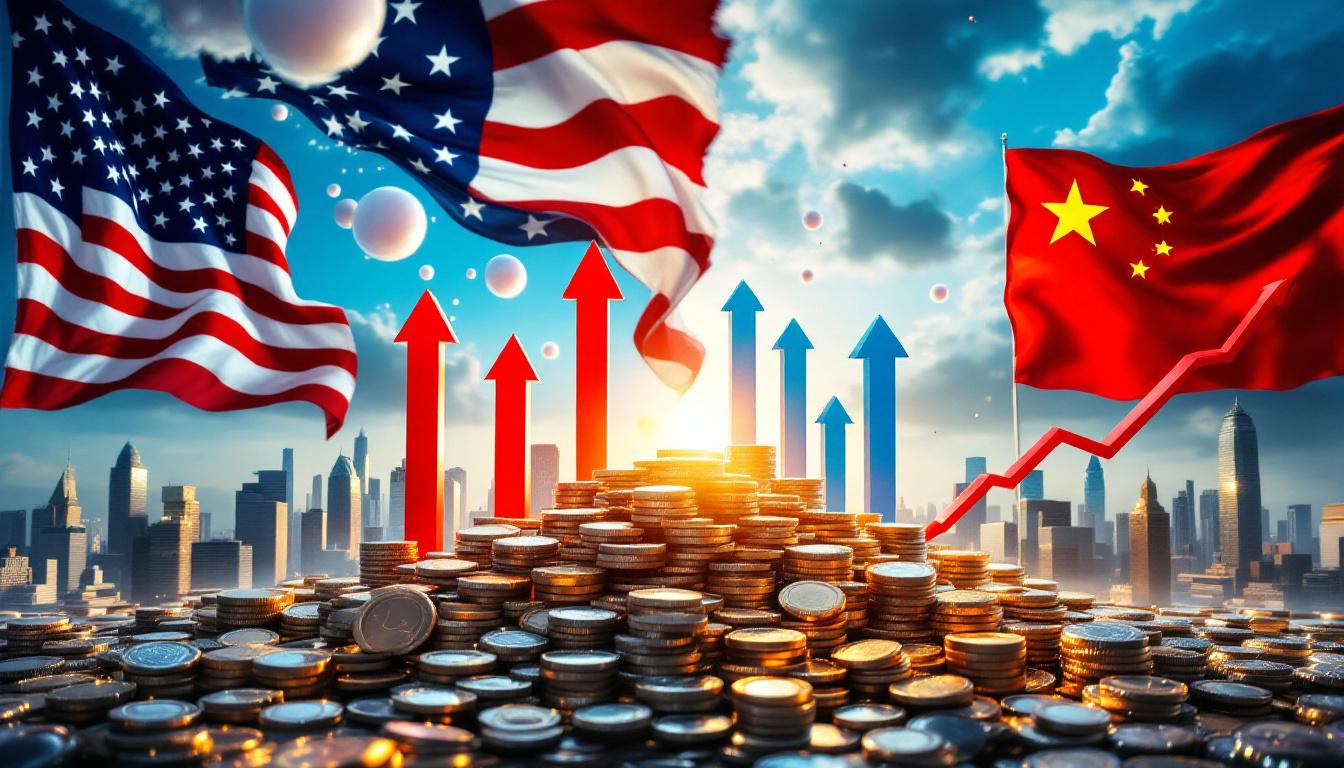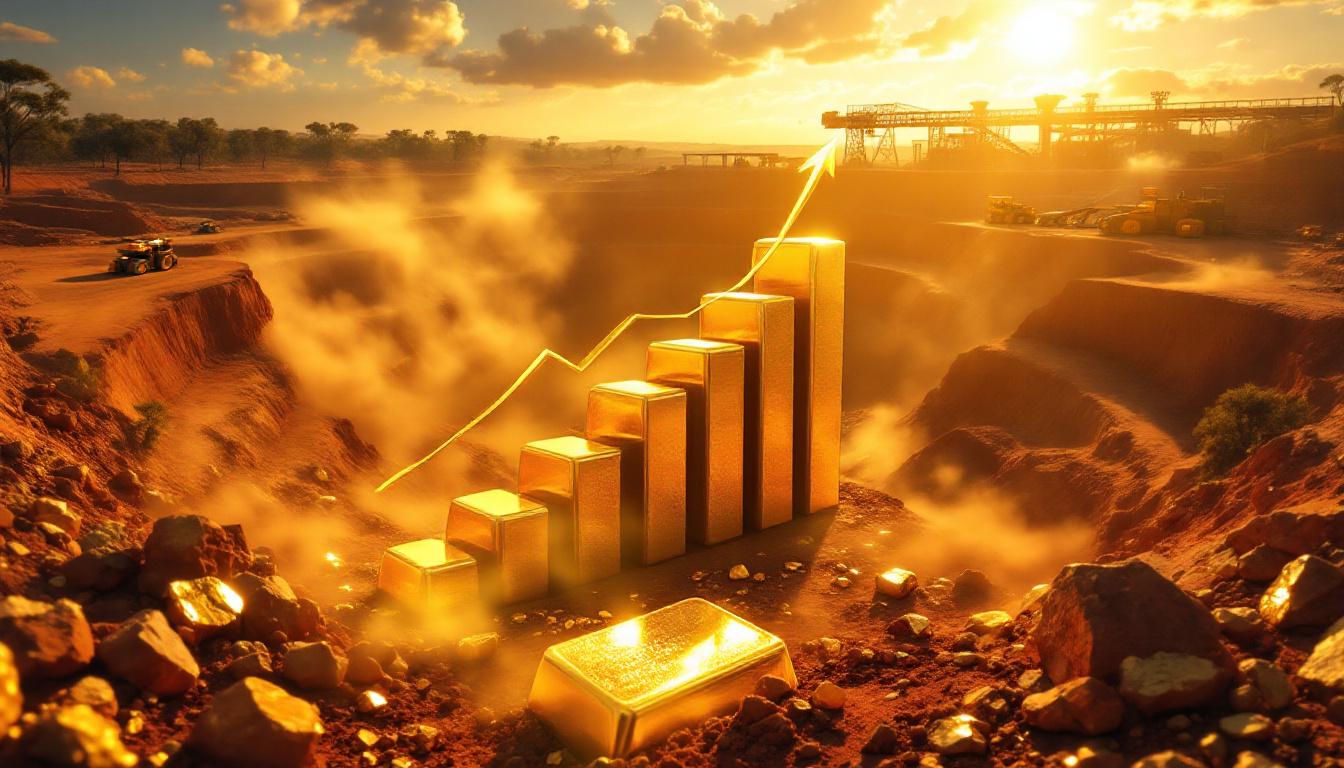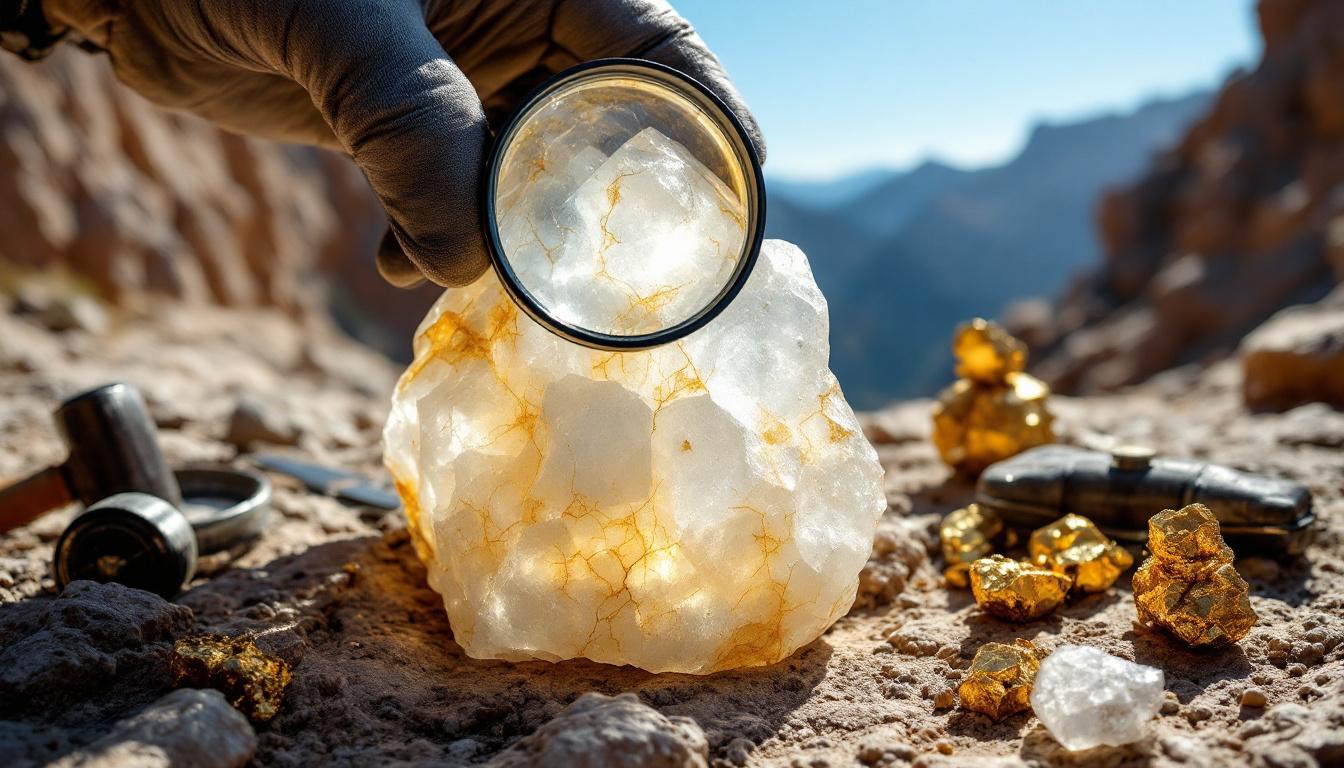Australian Strategic Materials: Building Critical Rare Earth Supply Chains Beyond China's Control
Australian Strategic Materials (ASX: ASM) has emerged as a pivotal player in the global rare earth market, offering Western nations a crucial alternative to China's near-monopoly. Through its Korean Metals Plant (KMP), ASM is supplying essential materials for high-performance magnets to manufacturers in the United States and European Union, directly addressing growing concerns about supply chain security in this strategically important sector.
What is Australian Strategic Materials' Role in the Global Rare Earth Market?
Australian Strategic Materials stands as one of the few companies globally with demonstrated capability to produce critical rare earth metals and alloys outside of China's dominant ecosystem. The company's Korean Metals Plant represents a strategically vital node in the emerging non-Chinese rare earth supply chain.
"Our Korean facility is uniquely positioned to deliver an alternative rare earth supply to the rest of the world," explains Rowena Smith, ASM's Chief Executive Officer. "As market dynamics shift and concerns about supply security grow, we've established ourselves as a reliable producer with validated capabilities."
The significance of ASM's position cannot be overstated. With China controlling approximately 85% of global rare earth processing capacity according to the US Geological Survey (2023), alternative suppliers have become essential to economic and national security interests across Western nations.
Key Rare Earth Products from ASM's Korean Facility
ASM's Korean Metals Plant produces several high-value rare earth products that serve as critical inputs for advanced manufacturing:
- Neodymium-praseodymium (NdPr) metal: High-purity rare earth metals essential for magnet production
- Neodymium-iron-boron (NdFeB) alloy: Custom-formulated magnetic alloys meeting precise specifications
- Specialized alloy variants: Tailored formulations for specific applications and performance requirements
What distinguishes ASM's production capability is not merely what it produces, but where and how it's produced. The company has established a completely independent supply chain that bypasses China's processing ecosystem, providing genuine supply diversification that many industries now consider essential.
Strategic Importance of ASM's Production Capabilities
ASM's rare earth production capabilities carry significance beyond commercial considerations:
- One of extremely few facilities outside China producing NdPr metal and NdFeB alloy
- Fully vertically integrated critical metals production from metal to finished alloy
- Technical expertise and intellectual property developed outside Chinese ecosystem
- Validation by major international customers confirms product quality and specifications
By establishing these capabilities, ASM addresses a critical vulnerability in global supply chains that has concerned governments, defense departments, and industry leaders across Western nations.
How is ASM Building Its Customer Base in Western Markets?
ASM has methodically developed relationships with magnet manufacturers in key Western markets, focusing particularly on validation processes that establish both product quality and production reliability.
"Our strengthening metal and alloy order book is the result of consistent and purposeful customer collaboration," notes CEO Rowena Smith. "We've successfully navigated rigorous validation processes with customers, proving both product quality and production capability."
This meticulous approach has yielded significant commercial relationships that demonstrate the company's growing acceptance as a qualified supplier to high-specification industries.
Recent Sales Achievements
ASM's commercial momentum is evident in several significant supply agreements announced in 2025:
- Noveon Magnetics (US): Agreement for 100 tonnes of NdFeB alloy, with first delivery of 15 tonnes scheduled for June 2025
- Vacuumschmelze (Germany): Purchase order for 7.2 tonnes of NdFeB alloy across five different specifications
- Multiple emerging magnet makers: Ongoing development of relationships with additional manufacturers across Korea, US, and EU markets
These agreements represent validation of ASM's technical capabilities and product quality. The ability to produce NdFeB alloy to five different specifications for Vacuumschmelze—a global leader in magnetic alloys—demonstrates the technical sophistication of ASM's production processes.
Key Customer Relationships
ASM's strategic customer relationships extend beyond simple supplier-buyer dynamics to represent collaborations with significant strategic implications:
- Noveon Magnetics: A US-based manufacturer focused on producing rare earth magnets domestically, supporting critical defense and EV applications
- Vacuumschmelze: A German manufacturer with over 100 years of expertise in magnetic materials and technologies
- Emerging magnet makers: New entrants establishing production in Western markets in response to supply chain concerns
These relationships position ASM at the center of the emerging non-Chinese rare earth magnet ecosystem, supporting broader initiatives to reduce dependency on Chinese suppliers for critical technologies.
What Makes ASM's Korean Metals Plant Strategically Important?
The Korean Metals Plant represents a critical node in developing rare earth supply chains independent of China. Its significance extends beyond commercial operations to geopolitical considerations around critical minerals energy security.
"Australian Strategic's position as one of the leading ex-China producers of NdPr metal and NdFeB alloy has been cemented," states CEO Rowena Smith. "This facility forms the cornerstone of an alternative rare earth supply chain positioned to meet growing global forecast demand."
Strategic Advantages of the Korean Facility
The location and ownership structure of ASM's Korean facility provide several key strategic advantages:
- 100% owned by Australian Strategic Materials, ensuring full control of intellectual property and production decisions
- Located in South Korea, a key US ally with established free trade agreements with Western nations
- Proximity to established technology supply chains in South Korea's advanced manufacturing ecosystem
- Technical workforce with specialized expertise in high-purity metal processing and alloy production
These advantages position the Korean Metals Plant as a critical asset in the broader effort to establish secure supply chains for strategic minerals across allied nations.
Production Capabilities
The technical capabilities of ASM's Korean facility distinguish it from most other rare earth projects outside China:
- Operational production (not merely developmental or planned capacity)
- Demonstrated alloy quality validated by leading international customers
- Multiple product specifications across different NdFeB alloy formulations
- Ability to adjust formulations to meet specific customer requirements
These capabilities represent years of development and significant investment that have established ASM as one of the few companies globally with demonstrated ability to produce these materials outside China's ecosystem.
Why Are Western Nations Seeking Alternative Rare Earth Supply Chains?
The push for alternative rare earth supply chains stems from growing concerns about China's dominance in this critical sector and recent export restrictions that have heightened supply vulnerability.
"As rare earth supply chains face increasing vulnerability due to China's export restrictions, Australian Strategic is continuing to develop existing and potential customer relationships," explains CEO Rowena Smith, highlighting the market dynamics driving interest in ASM's capabilities.
China's Dominance and Export Restrictions
The concentration of rare earth processing capacity in China presents significant risks to global supply chains:
- China controls approximately 85% of global rare earth processing capacity (US Geological Survey, 2023)
- Recent export restrictions on gallium, germanium, and certain rare earth processing technologies have heightened supply concerns
- Growing geopolitical tensions have elevated rare earth supply security as a strategic priority
- Critical industries including defense, renewable energy, and electronics require guaranteed access to these materials
These factors have created significant impetus for developing alternative supply sources, with government support increasingly available across Western nations.
Strategic Importance of Rare Earth Elements
The critical applications of rare earth elements explain why supply security has become a strategic priority:
- Electric vehicles: NdFeB permanent magnets power the motors in most EV designs, with each vehicle requiring 1-2 kg of rare earth materials
- Wind turbines: Each megawatt of wind power capacity typically requires 200-600 kg of rare earth materials for permanent magnet generators
- Defense applications: Precision-guided munitions, radar systems, and jet engines rely on rare earth materials
- Advanced electronics: Smartphones, computers, and other devices incorporate small amounts of rare earth elements
The International Energy Agency projects global EV sales to reach 30 million vehicles annually by 2030, driving substantial growth in magnet demand. Similarly, IRENA forecasts global wind energy capacity to reach 3,100 gigawatts by 2030, requiring significant quantities of rare earth magnets.
What Are ASM's Near-Term Commercial Milestones?
ASM has outlined several concrete commercial developments that demonstrate its transition from capability development to commercial production and rare earth sales from korean facility to us and eu magnet-makers.
"These shipments mark a key milestone in the commercialisation of alloy production," notes CEO Rowena Smith, highlighting the significance of recent supply agreements.
Noveon Magnetics Partnership
ASM's agreement with US-based Noveon Magnetics represents a cornerstone commercial relationship:
- First 15 tonnes of NdFeB alloy scheduled for delivery in June 2025
- Part of larger 100-tonne supply agreement signed in early 2025
- Remaining 85 tonnes to be delivered in second half of 2025
- Supporting US-made rare earth magnets production in Texas
This relationship directly addresses US strategic interests in developing domestic magnet manufacturing capability using non-Chinese materials. The Biden administration has identified rare earth magnets as a critical vulnerability in US supply chains, making this partnership strategically significant beyond its commercial value.
Vacuumschmelze Supply Agreement
The supply agreement with German manufacturer Vacuumschmelze demonstrates ASM's technical capabilities:
- 7.2 tonnes of NdFeB alloy across five different specifications
- Validates ASM's ability to produce custom alloy formulations to precise requirements
- Partnership with a globally recognized leader in magnetic materials
- Supports European efforts to diversify supply chains away from Chinese dependence
This agreement is particularly significant as Vacuumschmelze is known for demanding exacting specifications, validating the quality of ASM's production processes.
How Does ASM Support Western Strategic Interests?
ASM's operations align with broader Western strategic interests in developing secure supply chains for critical minerals, particularly as US–China trade impact increases concerns about resource security.
"Alloy from the KMP supports the fulfilment of the supply of US-made rare earth magnets," explains CEO Rowena Smith, highlighting the strategic implications of ASM's commercial relationships.
Support for Strategic Supply Chain Development
ASM contributes to Western strategic objectives in several key ways:
- Enables US and EU efforts to reduce dependency on Chinese rare earth materials
- Supports production of US-made rare earth magnets for defense and clean energy applications
- Strengthens strategic partnerships with key allies like South Korea
- Addresses vulnerabilities highlighted by China's export restrictions and processing dominance
These contributions align with policy initiatives like the US Inflation Reduction Act, which provides tax incentives for critical minerals sourced from free trade agreement partners, and the EU's Critical Raw Materials Act, which aims to reduce dependency on any single third country.
Long-Term Strategic Value
Beyond immediate commercial relationships, ASM creates long-term strategic value through:
- Building technical expertise in rare earth processing outside China's ecosystem
- Creating intellectual property in critical mineral processing methodologies
- Establishing commercial relationships throughout the emerging non-Chinese supply chain
- Demonstrating commercial viability of rare earth production independent of Chinese inputs
These contributions help address one of the most significant challenges in diversifying rare earth supply chains: the concentration of technical expertise and process knowledge within China's industrial ecosystem.
What Is ASM's Leadership Saying About Market Developments?
ASM's leadership has provided insights into both the company's progress and broader market dynamics affecting the rare earth sector.
CEO Rowena Smith on Market Position
Rowena Smith, who brings over 20 years of mining industry evolution experience to her role as CEO, has emphasized several key aspects of ASM's market position:
"Our strengthening metal and alloy order book is the result of consistent and purposeful customer collaboration."
"Australian Strategic's position as one of the leading ex-China producers of NdPr metal and NdFeB alloy has been cemented."
"As rare earth supply chains face increasing vulnerability due to China's export restrictions, Australian Strategic is continuing to develop existing and potential customer relationships."
These statements highlight both ASM's commercial progress and the market dynamics driving interest in non-Chinese rare earth supply.
Strategic Vision Statements
ASM's leadership has articulated a clear strategic vision for the company's role in global rare earth supply chains:
"Positioned to deliver an alternative supply to the rest of the world."
"Alloy from the KMP supports the fulfilment of the supply of US-made rare earth magnets."
"These shipments mark a key milestone in the commercialisation of alloy production."
These statements position ASM as a strategically significant company addressing critical vulnerabilities in global supply chains for essential materials.
FAQ: Understanding ASM's Role in Rare Earth Supply Chains
What rare earth products does ASM produce?
ASM produces neodymium and praseodymium (NdPr) metal and neodymium-iron-boron (NdFeB) alloy at its Korean Metals Plant. These materials are essential components in the production of permanent magnets used in electric vehicles, wind turbines, and various electronic and defense applications.
The NdFeB alloy is particularly significant as it represents a higher-value product that can be directly used by magnet manufacturers, bypassing additional processing steps that might otherwise require Chinese involvement.
Why are rare earth supply chains important?
Rare earth elements are critical components in many modern technologies, particularly those related to renewable energy and defense applications. With China controlling approximately 85% of global processing capacity and implementing export restrictions, alternative supply chains are essential for economic and national security.
The concentration of rare earth processing in China represents a strategic vulnerability for Western nations, particularly as applications in electric vehicles, wind energy, and defense systems drive growing demand for these materials.
How does ASM's production compare to global demand?
While ASM's current production represents a small percentage of global rare earth magnet material demand (approximately 40,000 tonnes annually according to Adamas Intelligence), it represents a significant capability outside China's ecosystem.
The company's agreements with magnet manufacturers demonstrate commercial validation of its products and production processes, positioning it for potential expansion as demand grows and Western nations increase support for alternative supply chains.
What advantages does ASM have over potential competitors?
ASM has several key advantages in the emerging non-Chinese rare earth supply chain:
- Operational production: Unlike many projects still in development, ASM's Korean facility is producing material that meets customer specifications
- Validated quality: Successful navigation of customer validation processes with sophisticated buyers
- Strategic location: South Korea provides access to technical expertise and established manufacturing networks
- Multiple customer relationships: Demonstrated ability to serve various markets and specifications
These advantages position ASM as a leader among the small group of companies developing rare earth capabilities outside China's dominant ecosystem.
Future Outlook for ASM and Global Rare Earth Supply Chains
Market Growth Potential
The market for rare earth magnets is projected to grow substantially through 2030, driven by several key factors:
- Electric vehicle production: The International Energy Agency projects global EV sales to reach 30 million vehicles annually by 2030, with each requiring 1-2 kg of rare earth materials
- Wind energy expansion: IRENA forecasts global wind energy capacity to reach 3,100 gigawatts by 2030, requiring significant quantities of rare earth magnets
- Defense applications: Growing defense budgets and focus on advanced technologies drive demand for specialized magnets
- Electronics and industrial motors: Ongoing growth across multiple applications maintains baseline demand
These growth drivers create substantial opportunity for suppliers capable of meeting Western demand with non-Chinese materials.
Potential Supply Chain Developments
The rare earth supply landscape is likely to evolve significantly over the coming years:
- Government support programs: Increasing financial and regulatory support for non-Chinese rare earth production
- Expanded processing capacity: Development of additional processing facilities in allied nations
- Recycling initiatives: Growing focus on recovering rare earth materials from end-of-life products
- Integration of supply chains: Connecting mines to processing to magnet production outside China
ASM's established position in this evolving landscape provides potential advantage as these developments accelerate, particularly with recent initiatives like the European CRM facility and Australia's defence-critical strategy.
Key Metrics to Watch
Investors and industry observers should monitor several key metrics regarding ASM's progress:
- Production volume growth at the Korean Metals Plant
- New customer acquisition in strategic markets
- Product diversification beyond current offerings
- Integration with upstream rare earth sources
- Government support initiatives for non-Chinese rare earth production
Progress across these areas would indicate strengthening of ASM's position in the evolving global rare earth supply chain.
Disclaimer: This article contains forward-looking statements about market developments and company performance. These statements involve risks and uncertainties, and actual results may differ materially from those anticipated. Readers should consider these factors when evaluating the information presented.
Wondering How to Spot the Next Major Mineral Discovery?
Discover why significant Australian mineral discoveries like Australian Strategic Materials (ASM) can generate exceptional returns by exploring Discovery Alert's dedicated discoveries page, where the proprietary Discovery IQ model helps investors identify actionable opportunities ahead of the market. Visit https://discoveryalert.com.au/discoveries/ today to gain your market-leading advantage.




